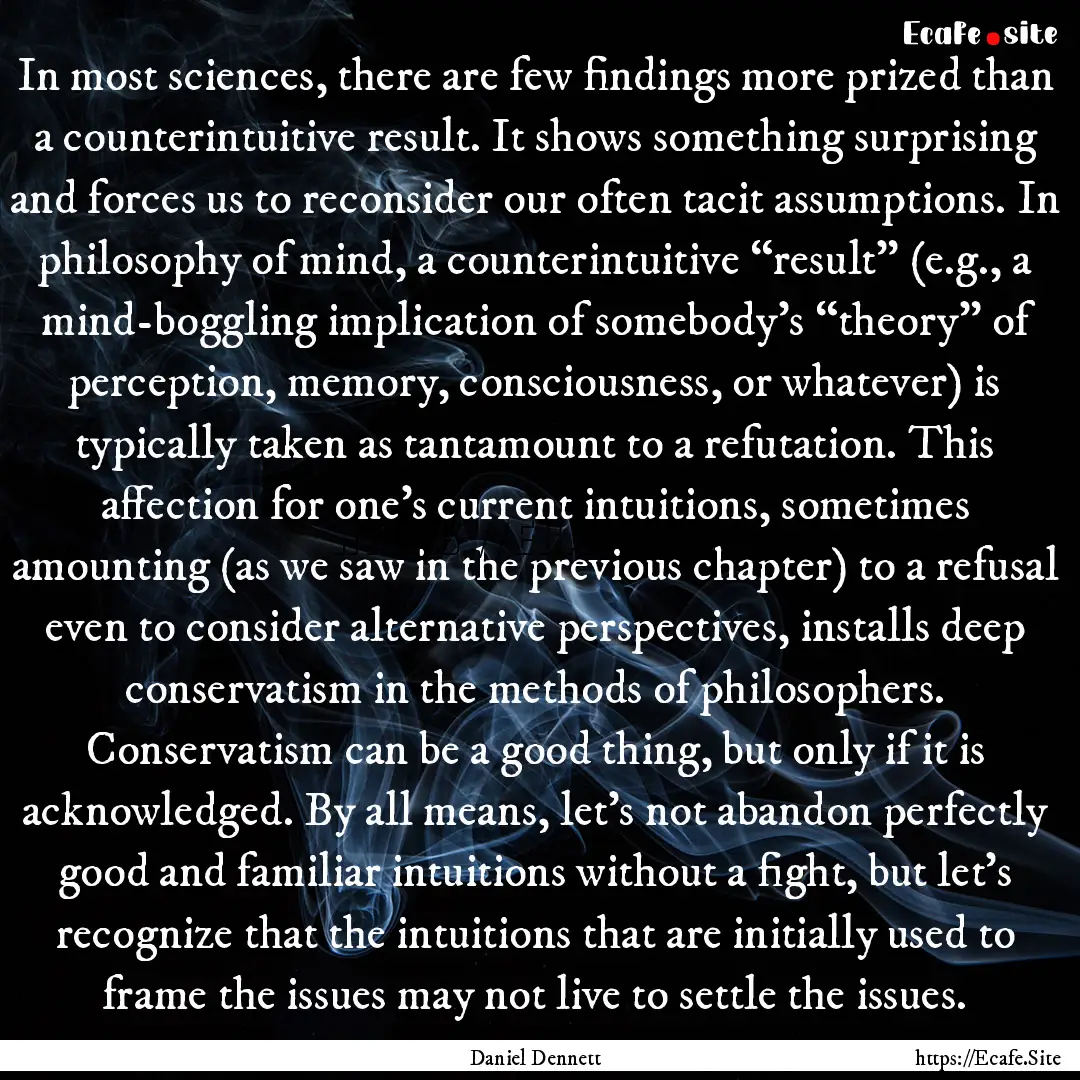
Report, if you have a problem with this page“ In most sciences, there are few findings more prized than a counterintuitive result. It shows something surprising and forces us to reconsider our often tacit assumptions. In philosophy of mind, a counterintuitive “result” (e.g., a mind-boggling implication of somebody’s “theory” of perception, memory, consciousness, or whatever) is typically taken as tantamount to a refutation. This affection for one’s current intuitions, sometimes amounting (as we saw in the previous chapter) to a refusal even to consider alternative perspectives, installs deep conservatism in the methods of philosophers. Conservatism can be a good thing, but only if it is acknowledged. By all means, let’s not abandon perfectly good and familiar intuitions without a fight, but let’s recognize that the intuitions that are initially used to frame the issues may not live to settle the issues. ”




